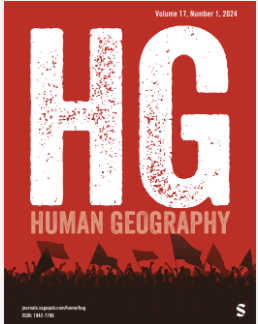Repression breeds resistance: A call for a methodology of radical solidarity and love to respond to the prison industrial complex and academia's eugenic tendencies.
This collaborative autoethnographic article traces psychology's complicity in systems of oppression while highlighting pathways toward liberation. An expression and embodiment of radical solidarity, this article is the product of a research collaboration between an incarcerated justice advocate and a critical psychologist. Critical autoethnographic methods are leaned on to lift experiences of prison as an oppressive institution and illuminate forms of resistance. We strategically and deliberately co-created this methodological approach to joyfully render prison walls metaphorically porous, to seep through surveillance mechanisms (both within the prison and academia), and to build liberatory worlds through our words. Situating mass incarceration as an extension of colonial displacement and enslavement, we dialogically examine how psychology has upheld white supremacy through the illusion of objectivity and neutrality. Psychological concepts like critical consciousness and resilience are re-theorized to center embodied, collective struggles. Calling for psychology to move beyond apologies toward deep structural change and distributive justice, we advocate for centering the experience of those historically excluded in knowledge construction, resource allocation, and leadership. Imagining a psychology of love and solidarity, we urge dismantling oppressive institutions through pedagogies of radical solidarity. Our collaboration—across prison walls—models methodologies of mutual aid, conscientization, and power sharing to build a liberatory psychology.
Read the whole article at:
Thank you to Human Geography for making this article open access for three months!
